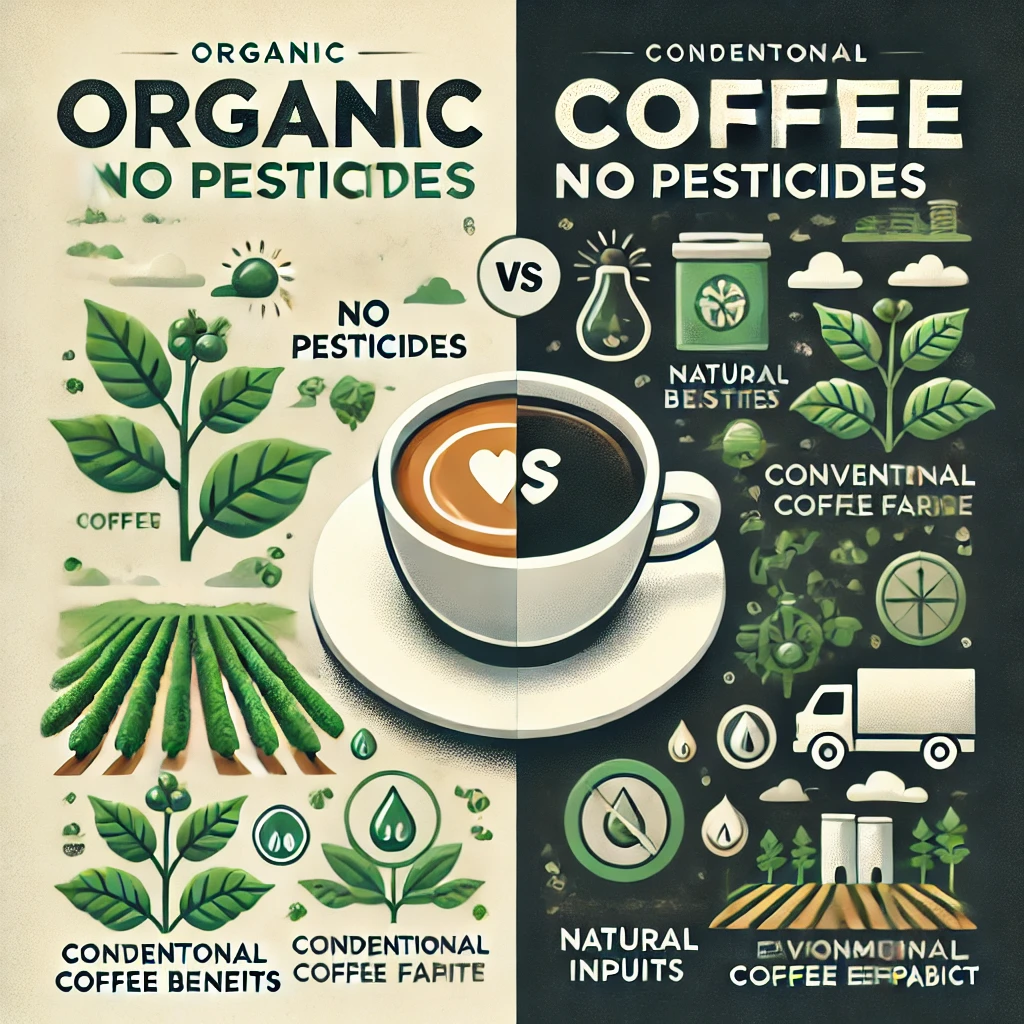When it comes to choosing your daily brew, the debate between organic vs. regular coffee often arises. Many coffee drinkers are increasingly concerned about the health benefits, environmental impact, and taste of their coffee. Understanding the differences between organic vs. regular coffee can help you make an informed decision that aligns with your values and lifestyle.
What Is Organic Coffee?
Organic coffee is grown without the use of synthetic pesticides, herbicides, or fertilizers. Organic farming practices prioritize soil health and environmental sustainability, ensuring that the coffee beans are free from harmful chemicals. Farmers rely on natural methods to protect their crops, which can result in a more eco-friendly coffee product. According to USDA Organic, coffee labeled as organic must meet strict guidelines for sustainable farming.
What Is Regular Coffee?
Regular coffee, also known as conventionally grown coffee, is produced using traditional agricultural methods that often involve chemical pesticides and fertilizers. While this method is widely used to increase yield, it may raise concerns about pesticide residues and environmental harm. Some coffee drinkers believe that the use of chemicals in farming can affect the taste and quality of the beans.
Health Benefits of Organic Coffee
Choosing organic coffee can have potential health benefits. Since organic coffee is grown without harmful pesticides, it may reduce your exposure to chemical residues. Additionally, organic coffee often contains higher levels of antioxidants, which are known for their disease-fighting properties. For more information on how organic products can benefit your health, check out Healthline.
Taste Differences: Organic vs. Regular Coffee
For many coffee lovers, the taste is a critical factor when choosing between organic vs. regular coffee. Organic coffee is often praised for its rich, pure flavor, free from the aftertaste that some attribute to chemical fertilizers. The absence of synthetic chemicals may allow the true flavor profile of the coffee beans to shine through. However, regular coffee can still offer bold and enjoyable flavors, depending on the quality of the beans and the roasting process.
Environmental Impact of Organic Coffee
One of the main reasons people choose organic coffee over regular coffee is the environmental impact. Organic farming practices are designed to promote biodiversity and protect ecosystems. By avoiding synthetic chemicals, organic coffee farms often have healthier soils and less contamination of water sources. Conventional coffee farming, on the other hand, may contribute to soil degradation and water pollution due to the use of chemical inputs. For a deeper dive into the environmental impact of coffee farming, visit WWF.
Cost Considerations
The price of organic coffee is typically higher than that of regular coffee, which can be a deciding factor for many consumers. Organic coffee requires more labor-intensive farming practices, which contributes to its higher cost. However, for those who prioritize sustainability and health benefits, the extra expense might be worth it. Conversely, regular coffee is often more affordable and widely available, making it a convenient option for many.
Conclusion
When comparing organic vs. regular coffee, there’s no one-size-fits-all answer. If you prioritize environmental sustainability and minimizing your exposure to chemicals, organic coffee may be the better option for you. However, if affordability and availability are your primary concerns, regular coffee remains a viable and enjoyable choice. For more insights into choosing the best coffee for your needs, visit Caffeine Globe and explore the world of coffee further.

